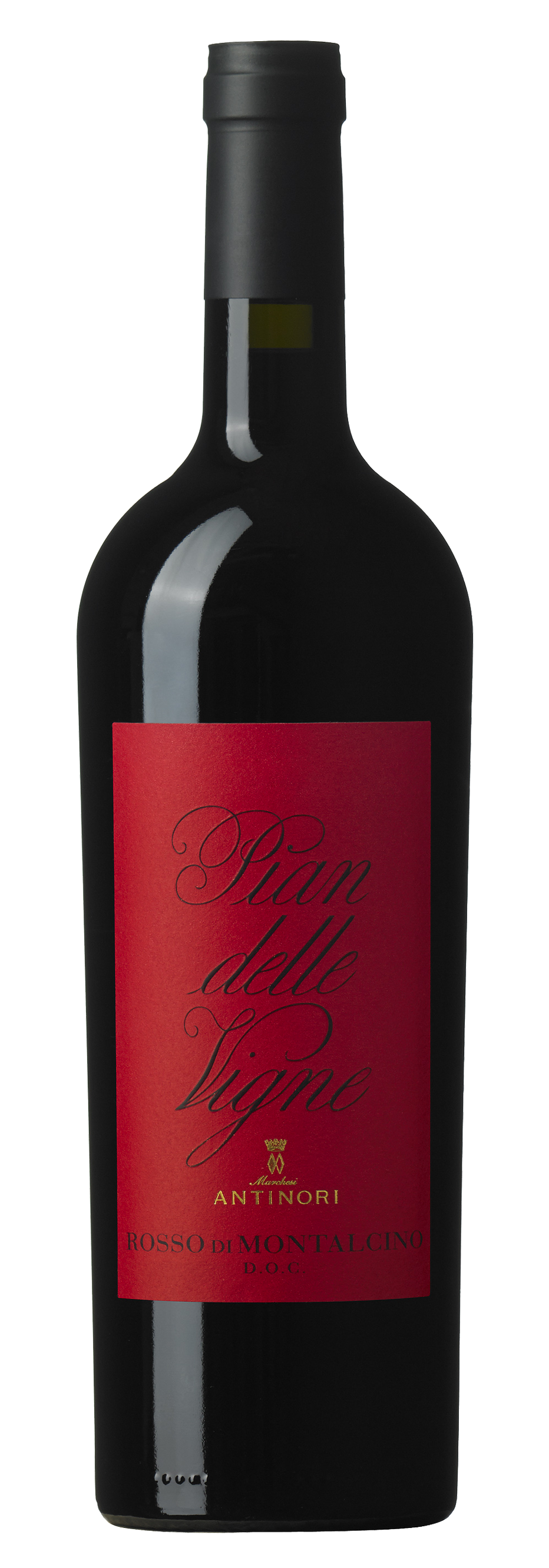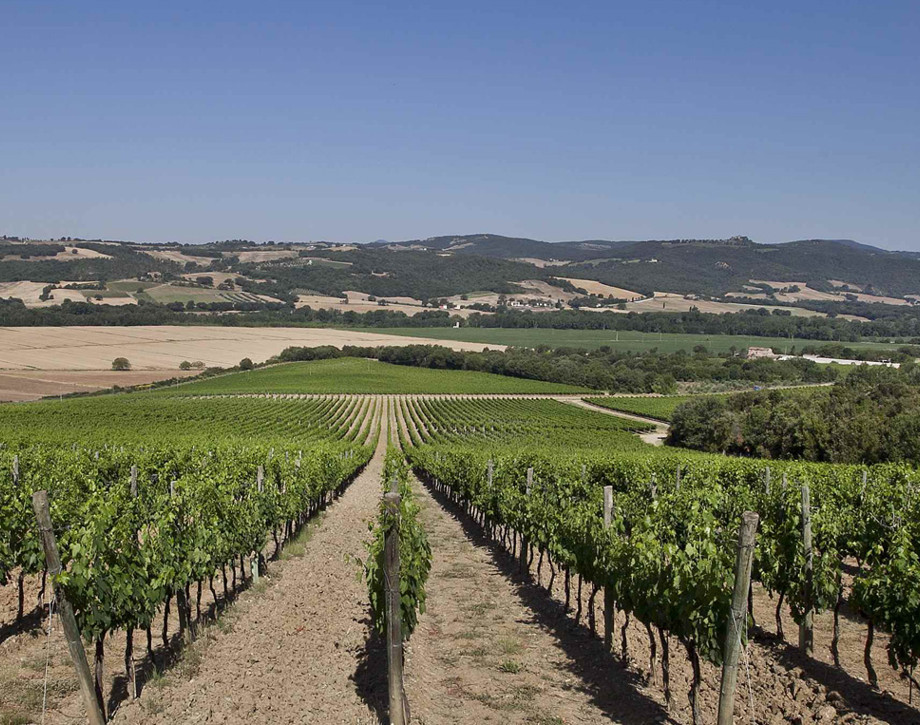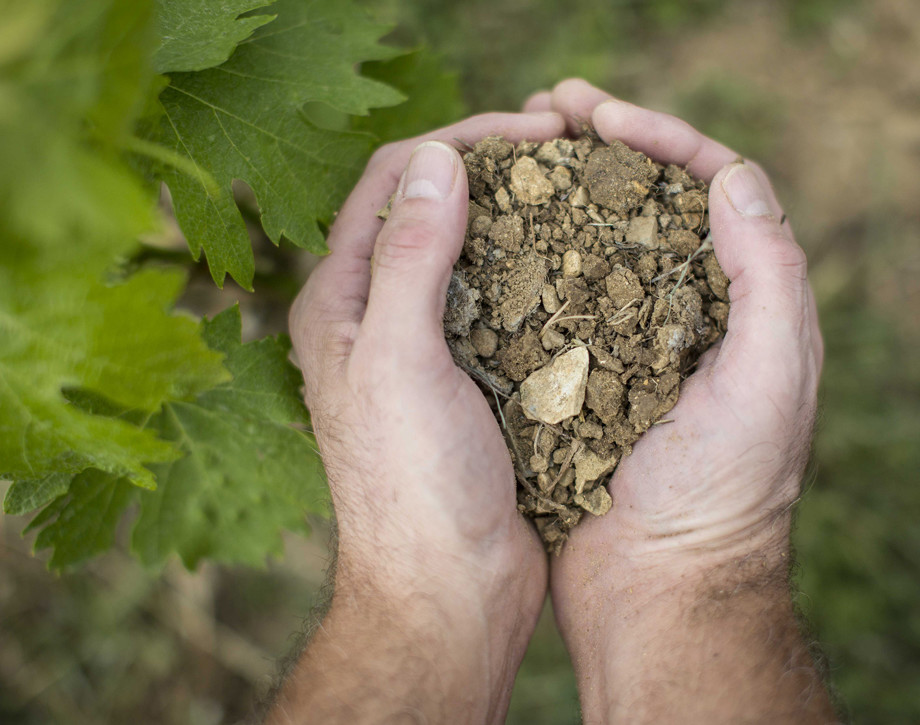Pian delle Vigne

Climate
Spring 2019 started out with higher than average temperatures while the second half of the season ushered in cool, dry weather. The month of May brought frequent rain showers that led to a slight delay in vine growth but provided excellent groundwater reserves. The summer season was one of the hottest on record in the Montalcino area but despite the extreme heat, Pian delle Vigne didn’t see any major heat spikes; the area benefitted from well-distributed rainfall and excellent temperature fluctuations between day and night that provided ideal conditions for optimal ripening of Sangiovese berries. Harvesting activities, slightly behind schedule compared to seasonal averages, began during the last half of September with perfectly healthy and fragrant fruit.
Vinification
Harvested grapes were brought to the cellar, destemmed, gently crushed and transferred into stainless steel tanks where alcoholic fermentation took place at a controlled temperature of 25 °C (77 °F) over a period of 8-10 days. Once malolactic fermentation was complete, Pian delle Vigne was aged for approximately 8 months.
Historical Data
Pian del Vigne estate, located 3.5 miles (6 kilometers) to the southwest of the town of Montalcino, takes its name from a characteristic 19th century railroad station situated within the confines of the estate. The property consists of 460 total acres (184 hectares), 205 of which (83 hectares) are planted to vines with generally a south-western exposure at an altitude of 430 feet (130 meters) above sea level. Pian delle Vigne is the personal and profound interpretation on the part of Marchesi Antinori of a traditional prestigious wine such as Brunello di Montalcino. The estate has belonged to the Antinori family since 1995, the year of the first vintage of the Pian delle Vigne Brunello. The Pian delle Vigne Rosso di Montalcino aims to fully bring out the fragrance of pure Sangiovese, the historic grape variety of Montalcino. The vineyards are situated on calcareous clay soils which create a wine which is fresh, mineral in character, and excellent drinking.
Tasting Notes
Pian delle Vigne is a vibrant ruby red color. Its nose expresses pleasant aromas of red fruit, such as cherries and sour cherries, with light floral hints of violets and lavender. On the palate, it’s fresh, refined and savory with supple, mouth-filling tannins; remarkable for its luscious fruit and lengthy finish. Extremely pleasant drinkability.

The Wine
This wine accentuates the pleasant freshness of the Sangiovese grape, Montalcino’s historic variety. The vineyard’s soil composition is calcareous-clay that allows Rosso di Montalcino to develop its characteristic freshness, minerality and finish.

Climate
Spring 2019 started out with higher than average temperatures while the second half of the season ushered in cool, dry weather. The month of May brought frequent rain showers that led to a slight delay in vine growth but provided excellent groundwater reserves. The summer season was one of the hottest on record in the Montalcino area but despite the extreme heat, Pian delle Vigne didn’t see any major heat spikes; the area benefitted from well-distributed rainfall and excellent temperature fluctuations between day and night that provided ideal conditions for optimal ripening of Sangiovese berries. Harvesting activities, slightly behind schedule compared to seasonal averages, began during the last half of September with perfectly healthy and fragrant fruit.
Vinification
Harvested grapes were brought to the cellar, destemmed, gently crushed and transferred into stainless steel tanks where alcoholic fermentation took place at a controlled temperature of 25 °C (77 °F) over a period of 8-10 days. Once malolactic fermentation was complete, Pian delle Vigne was aged for approximately 8 months.
Historical Data
Pian del Vigne estate, located 3.5 miles (6 kilometers) to the southwest of the town of Montalcino, takes its name from a characteristic 19th century railroad station situated within the confines of the estate. The property consists of 460 total acres (184 hectares), 205 of which (83 hectares) are planted to vines with generally a south-western exposure at an altitude of 430 feet (130 meters) above sea level. Pian delle Vigne is the personal and profound interpretation on the part of Marchesi Antinori of a traditional prestigious wine such as Brunello di Montalcino. The estate has belonged to the Antinori family since 1995, the year of the first vintage of the Pian delle Vigne Brunello. The Pian delle Vigne Rosso di Montalcino aims to fully bring out the fragrance of pure Sangiovese, the historic grape variety of Montalcino. The vineyards are situated on calcareous clay soils which create a wine which is fresh, mineral in character, and excellent drinking.
Tasting Notes
Pian delle Vigne is a vibrant ruby red color. Its nose expresses pleasant aromas of red fruit, such as cherries and sour cherries, with light floral hints of violets and lavender. On the palate, it’s fresh, refined and savory with supple, mouth-filling tannins; remarkable for its luscious fruit and lengthy finish. Extremely pleasant drinkability.

Tenuta Pian delle Vigne
The Pian Delle Vigne estate is located 6 kilometers (3.5 miles) southwest of Montalcino. Its name comes from the eponymous area where a characteristic nineteenth century railway station is located. Pian delle Vigne stretches out over an area of 184 hectares (454 acres) of which 83 hectares (205 acres) are planted with vineyards that grow at an altitude of approximately 130 meters (426 feet) above sea level and enjoy a southeastern exposure. The estate’s namesake wine, Pian delle Vigne, represents Marchesi Antinori’s deeply personal interpretation of a prestigious and traditional wine such as Brunello di Montalcino. The Antinori family acquired the estate in 1995, the same year the first Brunello Pian delle Vigne was harvested.

Soil
Soil composition is essentially clay, calcareous and rich in very fine gravel.


















